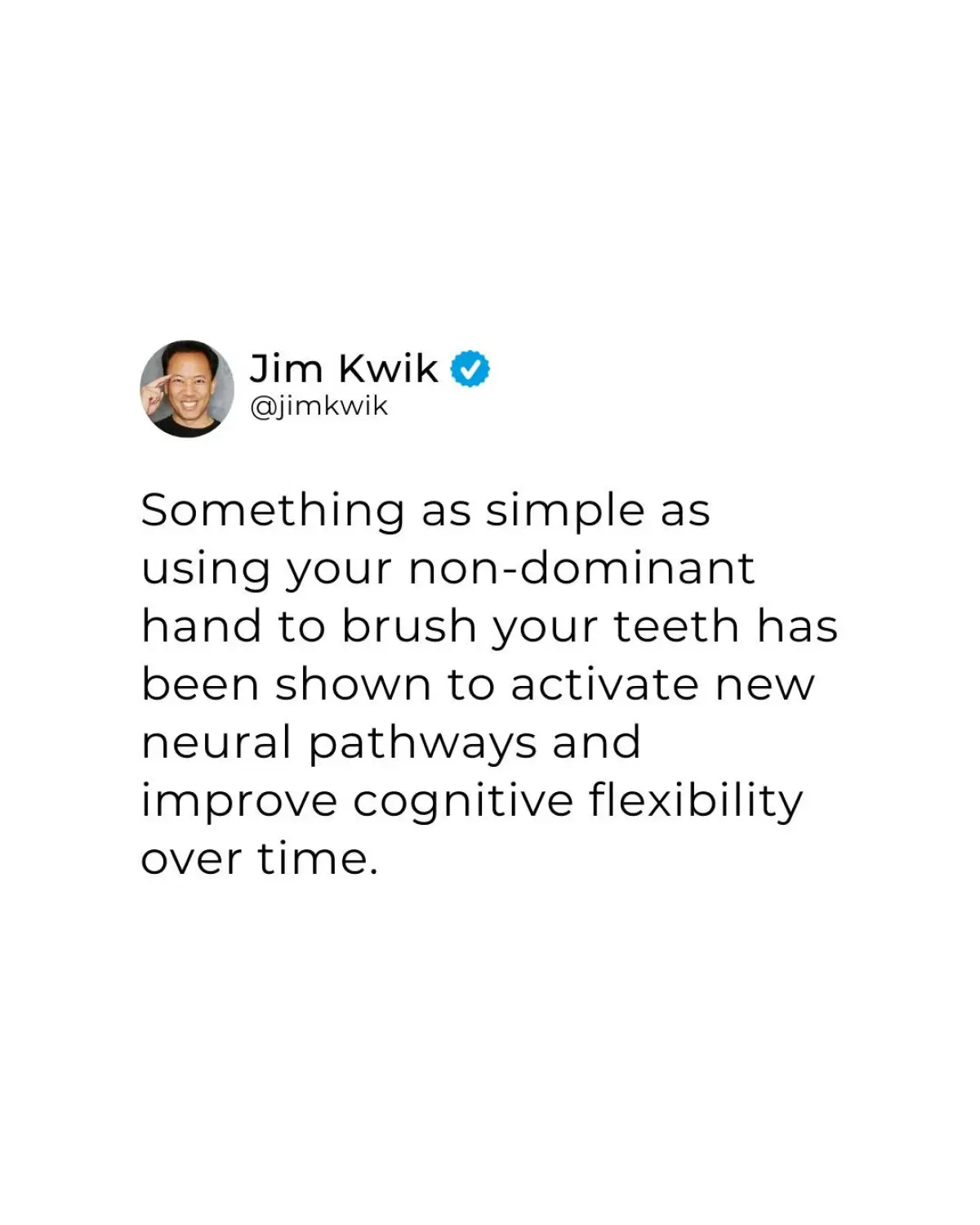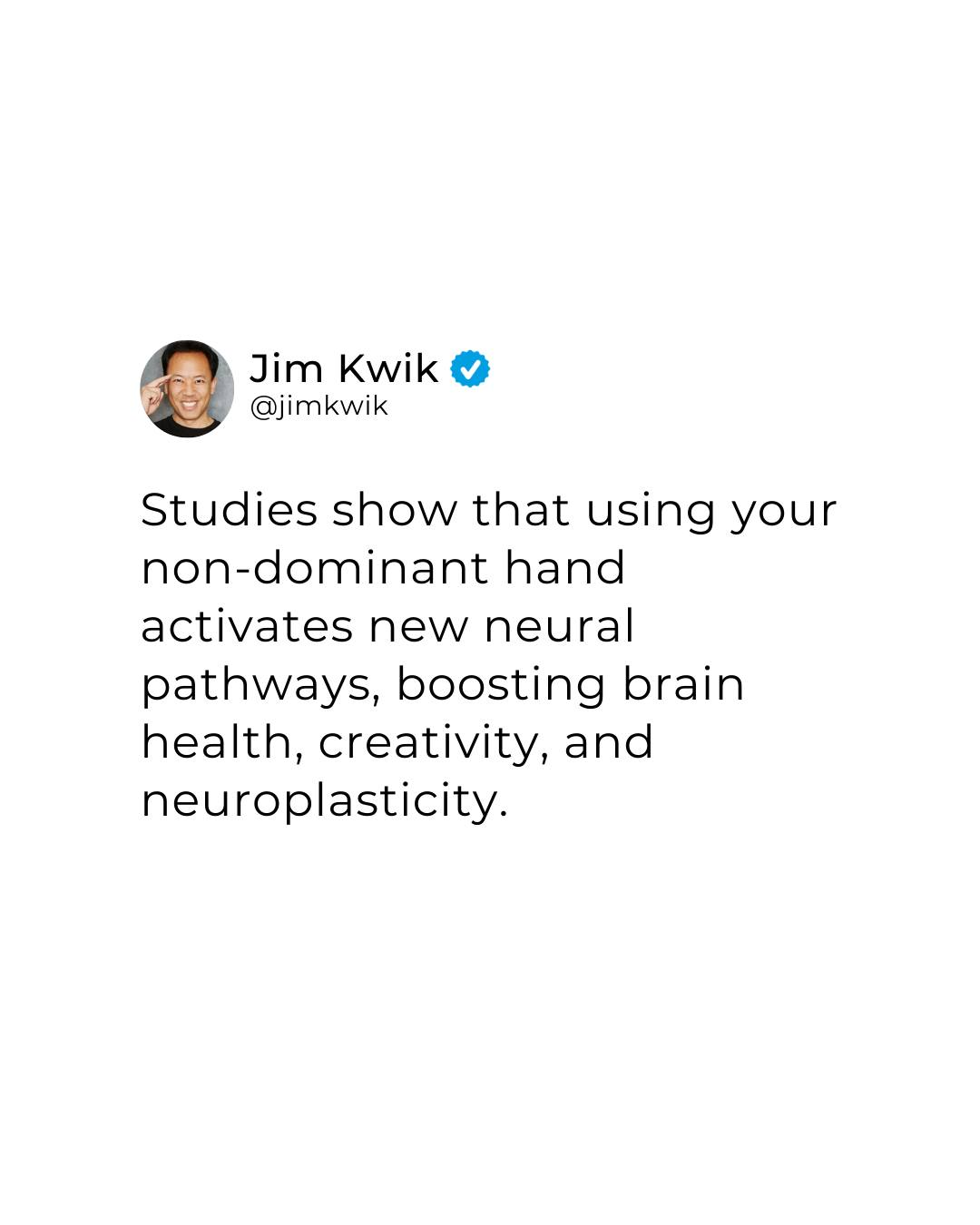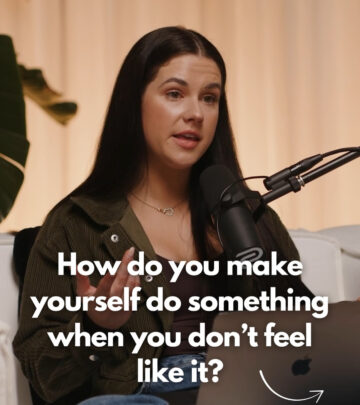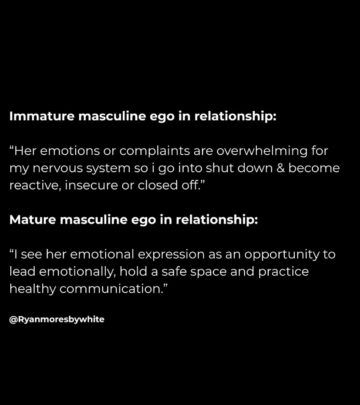Brain Boost With Simple, Unconventional Habits
Discover how small changes like switching hand use can improve focus and mental clarity!!!

Image: Instagram
Jim Kwik, the renowned brain performance coach, is challenging us to rethink our daily habits in order to improve mental clarity and focus. One of his latest tips is simple yet effective: try switching the hand you use while brushing your teeth. This small tweak forces your brain out of its routine autopilot, thereby stimulating neural growth and sharpening cognitive functions. As Kwik suggests, it isn’t about spending hours on brain training but rather about taking advantage of everyday moments to build a stronger, more adaptable brain.
Unconventional Brain Habits
The central idea behind this approach is that the brain thrives on challenges, no matter how minor they seem. Kwik’s message is clear: even small, unconventional actions can build new neural pathways. By disrupting our regular routines, our minds are encouraged to adapt, thereby enhancing flexibility and mental performance. Whether it’s switching the hand you use for a routine task or finding a new way to solve a simple problem, these micro-challenges are proven to work. This approach isn’t just theoretical—Jim Kwik has built his career empowering people to harness the potential of their brains with real-world strategies.
The Science Behind Small Challenges
When we engage in simple activities that we normally perform without thought, the brain benefits by forming connections that would otherwise remain dormant. Kwik explains that the brain responds to novelty and challenge by creating fresh neural pathways. These pathways are essential for higher cognitive functions, including memory, focus, and overall mental agility. The idea is that by embracing small, deliberate acts of disruption, we can effectively ‘exercise’ our brains in much the same way we would work out a muscle at the gym.
An Instagram post by Jim Kwik encapsulates this philosophy: “Your brain loves small, simple challenges—especially the ones that interrupt your autopilot.” This reminder encourages us to find opportunities in everyday life to critically engage our minds. It is a call to transform ordinary moments into powerful brain-boosting exercises. Kwik’s approach is particularly appealing because it empowers individuals by showing that high-level mental fitness doesn’t necessarily require extensive or expensive routines.
Simple Tactics For Neural Boost
This unconventional habit has resonated with many on social media, inspiring a wave of responses where people share their own small but meaningful changes. The directive is straightforward: try something new today—even if it looks insignificant. Past posts from Kwik reinforce this theme. In one, he asks his followers about the hardest decisions they’ve made that ultimately benefited them. Another highlights the importance of steady focus in a world full of distractions, stressing that discipline is truly an act of self-respect.
Kwik’s digital persona is a blend of practicality and motivational insight. His Instagram feed is filled with similar messages, including prompts like, “What’s one habit or tool that helps you stay focused?” and questions about building faith versus fear. Each post serves as a reminder that the path to mental excellence is paved with consistency and an openness to change. By prompting his audience to engage in small, reflective habits, Kwik not only teaches technique but also fosters a community centered on continuous self-improvement.
Everyday Actions, Extraordinary Results
This philosophy is particularly useful for anyone seeking mental clarity in today’s fast-paced environment. With constant distractions from digital devices and the pressures of modern life, taking control of one’s attention becomes crucial. Simple changes—like switching hands during routine tasks—can lead to a more resilient and adaptive mind. Kwik reminds us that our mental performance isn’t fixed; it is something we can train over time, much like any other skill.
Moreover, the simplicity of these techniques invites everyone to participate, regardless of their background or current level of mental agility. There is no need for specialized equipment or advanced training programs. Instead, embracing small challenges is accessible to all, making it an inclusive method for enhancing cognitive skills.
In addition to the brain-boosting habit of switching hands, Kwik and other thought leaders in the mental performance space have underscored the importance of quiet time and focused attention. These practices all converge on one key idea: to unlock your brain’s full potential, you need to constantly nurture and challenge it, even with the simplest actions.
As Jim Kwik advocates, it’s not about complex routines but about acknowledging that everyday moments are chances to cultivate a sharper, more agile mind. His approach resonates widely because it demystifies brain training and turns it into an achievable goal for everyone.
Ultimately, the message is a powerful reminder that self-improvement can start with the tiniest of changes—a concept that continues to inspire a community of individuals dedicated to lifelong learning and mental mastery.
Read full bio of Joyce

























